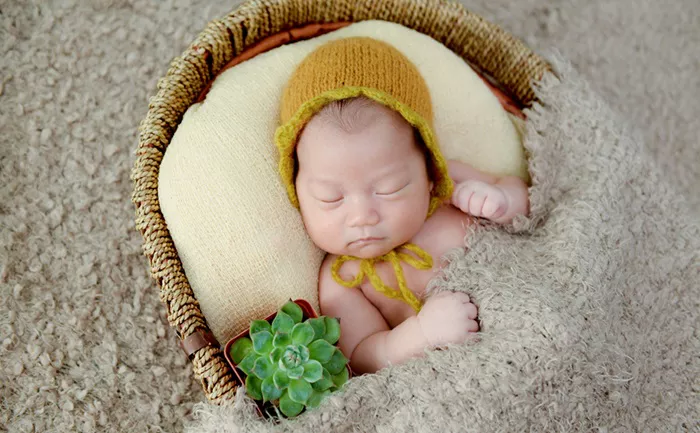Newborn hiccups are a common occurrence that many parents encounter. While generally harmless, they can sometimes be a cause for concern. This article aims to provide comprehensive information on understanding, preventing, and managing newborn hiccups effectively.
Understanding Newborn Hiccups
Hiccups in newborns are caused by involuntary contractions of the diaphragm followed by the rapid closure of the vocal cords, which produces the characteristic “hic” sound. These contractions can occur frequently in infants, sometimes several times a day, and usually last for a few minutes.
Why Do Newborns Get Hiccups?
There are several reasons why newborns might experience hiccups:
Feeding:
Overfeeding, eating too quickly, or swallowing air during feeding can cause the stomach to expand and irritate the diaphragm.
Gastroesophageal Reflux (GER):
This is when stomach contents flow back into the esophagus, which can irritate the diaphragm.
See also: Why Do Newborns Have Hiccups?
Temperature Changes:
Sudden changes in temperature, such as moving from a warm room to a cooler one, can trigger hiccups.
Excitement or Emotional Stress:
Although less common, excitement or stress can sometimes lead to hiccups in newborns.
Preventing Newborn Hiccups
While it’s not always possible to prevent hiccups, certain practices can reduce their frequency:
Feeding Techniques
Proper Positioning: Ensure that your baby is in an upright position during and after feeding. This helps prevent the stomach contents from pressing against the diaphragm.
Paced Feeding: Feed your baby smaller amounts more frequently. This can help prevent overfeeding and reduce the risk of hiccups.
Burping: Burp your baby regularly during and after feeding. This helps release any trapped air in the stomach that might cause hiccups.
Environmental Control
Temperature Regulation: Maintain a consistent and comfortable temperature in your baby’s environment. Avoid sudden changes in temperature that can trigger hiccups.
Calm Environment: Keep the feeding environment calm and relaxed to prevent emotional stress or excitement that can lead to hiccups.
Managing Newborn Hiccups
If your newborn gets hiccups, there are several ways to manage them effectively:
Gentle Burping
Gently pat your baby’s back to help release any trapped air that might be causing the hiccups. This is often effective in stopping the hiccups.
Offering a Pacifier
Sucking on a pacifier can help relax the diaphragm and stop the hiccups. It also provides a comforting distraction for the baby.
Changing Feeding Positions
If your baby gets hiccups during feeding, try changing their position. This can help reduce the pressure on the diaphragm and stop the hiccups.
Using a Feeding Break
Taking a short break during feeding can help slow down the rate of feeding and reduce the likelihood of hiccups.
When to Seek Medical Advice
While hiccups are generally harmless, there are certain situations where you should seek medical advice:
Persistent Hiccups: If your baby’s hiccups last for more than a few hours or occur very frequently, it’s a good idea to consult a pediatrician.
Associated Symptoms: If hiccups are accompanied by other symptoms such as vomiting, excessive crying, or feeding difficulties, seek medical advice.
Suspected GER: If you suspect that your baby’s hiccups are due to gastroesophageal reflux, consult your pediatrician for appropriate management.
Myths and Misconceptions
There are several myths and misconceptions about newborn hiccups that need to be addressed:
Scaring the Baby: Some believe that scaring a baby can stop hiccups. This is not only ineffective but also potentially harmful.
Pulling the Tongue: Another myth is that pulling a baby’s tongue can stop hiccups. This is also ineffective and can cause distress.
Giving Water: It’s a common belief that giving water to a hiccupping baby can stop the hiccups. However, this is not recommended for newborns.
Conclusion
Newborn hiccups are a common and generally harmless occurrence. Understanding the causes and implementing effective prevention and management strategies can help reduce their frequency and impact. If hiccups persist or are accompanied by other symptoms, seeking medical advice is important. By maintaining proper feeding techniques, regulating the environment, and addressing myths, parents can ensure their newborn’s comfort and well-being.
FAQs
1. What causes newborn hiccups?
Newborn hiccups are primarily caused by involuntary contractions of the diaphragm, often triggered by factors such as overfeeding, swallowing air during feeding, sudden temperature changes, or emotional stress.
2. Are newborn hiccups harmful?
No, newborn hiccups are generally harmless and a normal occurrence. They do not cause discomfort or pain to the baby.
3. How often do newborns get hiccups?
Newborns can experience hiccups several times a day, especially after feedings or during periods of excitement.
4. How long do newborn hiccups last?
Newborn hiccups typically last for a few minutes, although in some cases, they may persist for up to 10-20 minutes.
5. Can hiccups affect my baby’s feeding?
Generally, hiccups do not interfere with feeding. However, if they occur during a feeding session, you can pause briefly and resume feeding once the hiccups subside.


